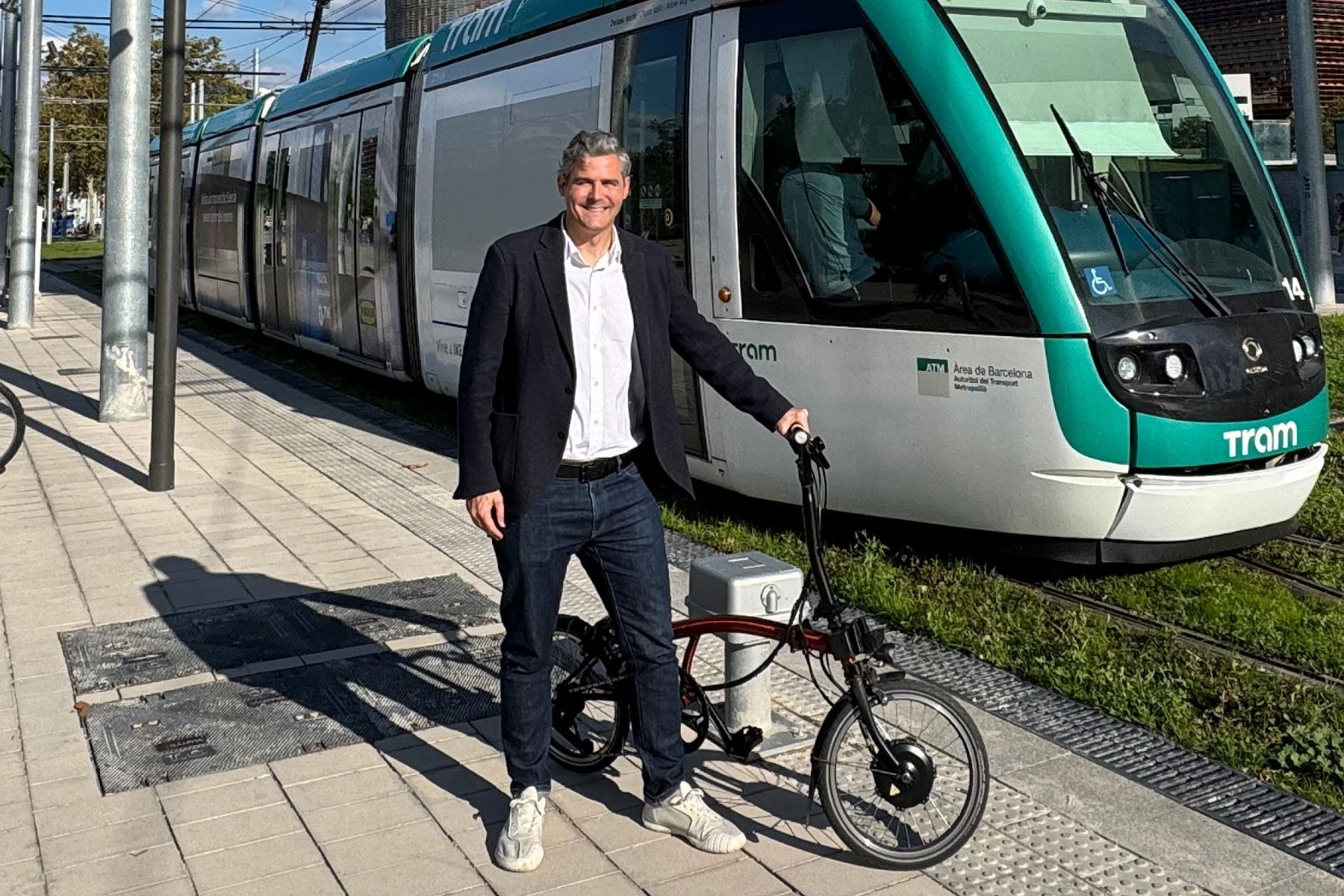‘We need to act with speed’: Inside Europe’s race for a unified mobility sector

Europe’s mobility scene is flourishing, but scaling across a continent with fragmented regulations still remains a significant hurdle for many companies. <br><br>EIT Urban Mobility wants to change that – and the EU’s new startup and scaleup strategy fits right into that mission.

How can Europe be the best place for startups and scaleups? That question has been a hot topic among investors, both before and after the EU launched its much-awaited Startup and Scaleup Strategy in May.
The issue is perhaps even more urgent in the mobility sector, says Daniel Serra Segarra, Impact Director at EIT Urban Mobility, Europe’s most active mobility investor.
“Some of the most successful mobility companies are within B2B or B2G (business-to-government) segments,” he tells Impact Loop. “But these companies face a number of challenges when it comes to scaling – partly because of the patchwork of regulations in different countries.”
Between 2020 and 2025, EIT Urban Mobility invested in 143 startups. Its portfolio includes the likes of Circu Li-ion, a Luxembourg-based startup that upcycles old lithium-ion batteries, and Germany’s Futurail, which automates railway networks.
However, Serra Segarra warns that Europe’s fragmented regulatory framework risks stifling the growth of young ventures like these. It creates bottlenecks, adds unnecessary costs, slows down time-to-market and undermines investor confidence. Some mobility companies have even chosen to move outside the EU to scale.
EIT Urban Mobility sees an opportunity in the upcoming European Innovation Act, part of the Startup and Scaleup Strategy, and is now submitting feedback and insights on how it can strengthen the European mobility ecosystem.
A first step, Serra Segarra says, would be a unified EU-level definition for “startup,” “scaleup,” and “innovative company.”
“That would bring clarity and make it easier to see which measures suit which companies,” he explains.
Other proposals suggest introducing an innovation stress test for new legislation – particularly in areas such as transport, climate, data, and AI – to ensure that regulations are fair to small businesses, harmonised across countries, do not hinder market entry, and provide predictability for investors.
Moreover, if Europe aims to strengthen its competitiveness, small companies must be granted the same rights and opportunities as large corporations.
Funding and IP protection are two other pain points. The real value of most mobility startups isn’t in factories or fleets, but in their data and software – yet Europe’s financial system still struggles to put a price on those assets. EU-wide standards for valuing IP as collateral, combined with public co-investment guarantees, could make it easier for startups to raise capital and scale faster, says Serra Segarra.
Overall, several of EIT Urban Mobility’s proposals target the scaling headaches startups face when expanding across new cities and countries. One practical idea: a “one-stop-shop” platform that brings together all available EU and national funding programmes in one place.
But above all, Serra Segarra stresses the importance of action:
“If Europe wants to stay competitive and be the best place for mobility companies to thrive, we need to act with speed.”
Get full access to Europe's new platform for impact news
- Quality journalism, interviews, investor profiles and deep-dives
- Daily newsletter with top stories, latest funding rounds and roundup to keep you in the loop
About EIT Urban Mobility and this partnership
Founded in 2019 as an initiative of the European Institute of Innovation and Technology (EIT), a body of the European Union, EIT Urban Mobility accelerates the sustainable urban mobility transition by providing established businesses, startups, universities, research institutes and the public sector with access to markets, talent, funding and knowledge.
As the most active mobility investor, EIT Urban Mobility has supported over 520 startups in 39 countries and invested close to €30M. Via their network of more than 1,200 stakeholders, the organisation connects startups with the right stakeholders in the private and public policy sector, at regional, national and European levels.
Read more about EIT Urban Mobility here – and feel free to reach out!
Keep reading – get in the loop!
- Håll dig i loopen med vårt dagliga nyhetsbrev (gratis!)
- Full tillgång till daglig kvalitetsjournalistik med allt du behöver veta inom impact
- Affärsnätverk för entreprenörer och investerare med månatliga meetups
Fortsätt läsa – kom in i loopen!
- Håll dig i loopen med vårt dagliga nyhetsbrev (gratis)!
- Full tillgång till daglig kvalitetsjournalistik med allt du behöver veta inom impact
- Affärsnätverk för entreprenörer och investerare med månatliga meetups








